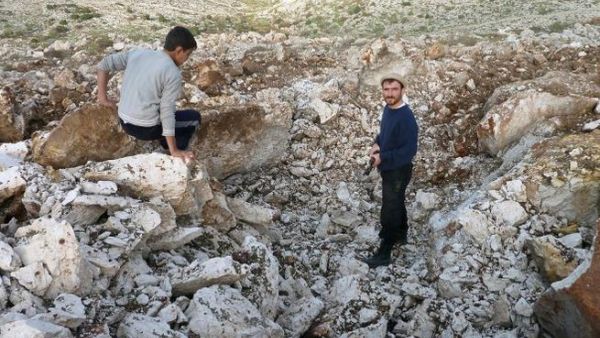A number of Scud missiles fired at rebels by the Syrian regime landed “fairly close” to the Turkish border, according to online comments by senior NATO commander, US Admiral James Stavridis.
In a blog explaining why Patriot anti-missile batteries are being deployed to Turkey, NATO’s Supreme Allied Commander in Europe, offered the first confirmation on Friday that Scuds have come down near the border of Turkey, a NATO member state.
"Over the past few days, a handful of Scud missiles were launched inside Syria, directed by the regime against opposition targets. Several landed fairly close to the Turkish border, which is very worrisome," Stavridis wrote.
Stavridis voiced particular concern over the potential to put chemical and biological warheads inside Scuds, inflicting huge amounts of damage at long distances.
"Given a number of recent cross-border incidents with artillery and mortars landing in Turkey and killing Turkish civilians, we are concerned with possible Scud missile activity inside Syria. Scuds ... are particularly worrisome because they can carry chemical payloads," he said.
Stavridis’ statements follow NATO’s decision to deploy Patriot defences, able to spot and intercept incoming missiles, to Turkey.
On Friday, Leon Panetta, the US defence secretary, signed an order to send two Patriot missile batteries to Turkey with 400 American personnel.
On the same day, Germany's lower house of parliament approved the sending of two Patriot batteries and 400 soldiers to Turkey as part of the NATO plan.
Meanwhile, Russia’s foreign ministry insisted on Friday that the country has not changed its position on Syria and “never will,” according to reports.
The announcement followed a comments on Thursday by Russia’s Deputy foreign minister, Mikhail Bogdanov, that Syria’s government is “progressively losing control” and that “the victory of the Syrian opposition cannot be excluded.”
Analysts said Bogdanov’s assessment of events suggested that Moscow has begun positioning itself for a regime change in Syria.
On Friday, the Russian foreign ministry said Mr Bogdanov had "issued no statements and given no special interviews in recent days".







